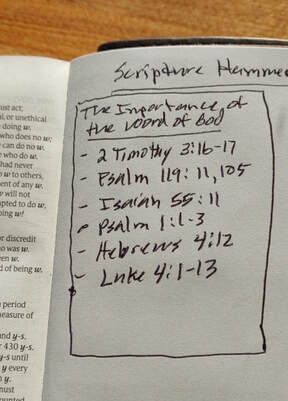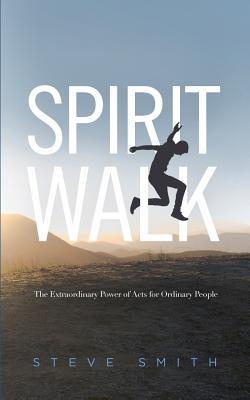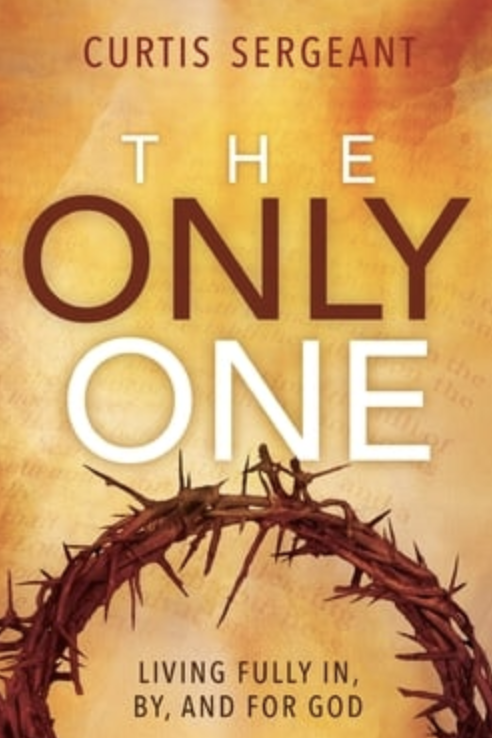|
“Why, my soul, are you so dejected? Why are you in such turmoil." – Psalms 42:5 It’s been a full season of ministry, of working on good, kingdom projects and investing in people that God brings across my path. In every way, ministry has been rewarding, purposeful and mostly, a lot of fun. I really do love the work of the ministry I’m a part of. And yet. What started as a tiredness which I attributed to my week-long battle through on and off fever and a hacking cough - it’s been going around - has now settled into a low grade feeling of blah. It’s not depression. It’s not despair and I wrestle to even know how to explain it but it's there. And as I actually sit with it and think back, it's been there for a while, weeks perhaps. It is unfortunately a familiar feeling, something that visits once, sometimes twice a year and which usually, as Douglas Rumford observes, follows a season where I find myself “unable to keep all the fires that we’ve started fueled.” I took on too much. One project in particular has turned into a bit of a roller coaster of on again off again waiting with a lot riding on my shoulders. At this point it’s just a season of the blahs, of fighting to stay motivated and occasionally feeling tired throughout the day. I’m thankful that I’ve had good mentors and friends that have taught me to see the symptoms and through the years I have learned to respond proactively and early. It is easy to see however that, left untended, this sort of season could easily descend into full scale burnout. We read about it in others more than we’d like and wonder why it happens so often to pastors and leaders and regular people alike. One thing that I often find helpful is to pick up a book on the topic of soul care - that’s what it is after all - and so yesterday I began Douglas Rumford’s Soul Shaping. I’m just one chapter in but found this first chapter, “Recognizing the Symptoms of Soul Neglect” an excellent resource for anyone wondering if they are wandering into the beginnings of the blahs or the blues or the dark night of the soul. His list of ten symptoms is a useful rubric to hold yourself up to if you’re not quite sure. The list is a simple tool which will help you reflect on the state of your soul. I won’t explain each here, most are pretty easy to understand, but I’d encourage you to prioritize setting aside regular time to reflect on your life and thoughts and how your soul is doing. In our hurried, harried lives of the 21st century few prioritize anything other than keeping busy doing productive things. This of course flies in the face of John 15 and the abiding life that Jesus calls us to but it seems the siren song we cannot restrain ourselves from following. Here are Rumford’s list of ten soul symptoms:
It should be noted that everyone will find themselves in seasons like this from time to time. There are things we can do to guard against it but we do live in a broken world. We started the article with a Psalm of David, a man after God’s heart and he sounds like he’s in a pretty dark place. The Apostle Paul once wrote that he “despaired of life itself” (1 Corinthians 1:8). Charles Spugeon, in a talk to ministerial students, once said, “Fits of depression come over the most of us. Usually cheerful as we may be, we must at intervals be cast down. The strong are not always vigorous, the wise not always ready, the brave not always courageous, and the joyous not always happy.” If you reflect on the list above and find you check off more of the symptoms than you’d like to admit, it doesn’t necessarily mean that you’ve somehow been disobedient to God or failed. It does mean that you probably need to take steps to return to a place of greater soul health though. Near the end of the chapter, Rumford says, “Paying attention to our hearts is the first step to valuing ourselves – as God values us – and to setting us free to value and love others – as God through Christ values and loves them.” Set aside some time this week - a good half day or so - to sit with the Lord and reflect on the state of your soul. Other Helpful Books
If you found this article helpful, pass it along to a friend who you think may benefit from reading it.
0 Comments
“It breaks my heart to see friends step away from the faith, but I know that they will not be dragged back forcefully, so I just try to love them and show my faith through my action toward them.” I don’t want to pick on Gen Z here - this is a sentiment that I hear from every generation. Inevitable, Francis of Assisi will be misquoted, “Preach the gospel at all times. If necessary, use words.” It’s an interesting misattribution seeing that Francis is recorded as preaching sermons not only to people, but to the birds and animals as well. It creates a false dichotomy, pitting one aspect of the Christian work of sharing the gospel with another. It’s never words versus deeds. It is always words and deeds. It is an interesting idea to consider though - the idea that if we just love really well and serve others well, those people will want to know about our faith in Christ. But here is a question to ask yourself: Do you have friends who are not Christians? Are they Atheists, Muslims, Hindus or others? Are some of them not loving, helpful people? The type of people who would give you the shirt off their back if you needed it? I have lots of friends like that - some much more service minded than I am - and never once have I thought to myself, “Man, they are really nice. I think I want to learn more about their beliefs about God and maybe become whatever faith they are.” Why do we think our friends will respond any differently? Being nice is not the gospel, it’s part of being human. Everyone can do it and does. When we look back at Jesus and the apostles, at the early church, at Francis of Assisi, they weren’t just nice, helpful people. They were recklessly generous with their money and time and words. Jesus’ three years of ministry were filled with the disruption of broken and sinful people barging into his day with requests for healing and help. He doesn’t seem to have been good at setting healthy boundaries. The first Christians regularly sold their possessions to give to the poor, cared for the sick when others dumped them in the streets and reconciled Jew and Greek, slave and free, male and female into one body, the Body of Christ. Read any good biography of St. Francis and you’ll quickly realize that he wasn’t just nice and helpful - he was bonkers for Christ and gave everything, in word and in deed, to serve his King. Michael Frost, in his book “Surprise the World” suggests that the kind of life that actually catches people’s attention is what he calls ‘questionable lives’. These are the lives of Jesus and the apostles, the first century believers and believers, like Francis, all through history. Frost suggests that “our challenge is to find what similarly questionable lives look like in the twenty-first century.” So, as we interact with those who don’t believe, if we are going to “just try to love them and show our faith through our actions toward them” we may need to pray about what it looks like to have our love and actions become questionable in their eyes. Being a normal, good person is not enough. Yes, we should serve others through our love and actions, but Paul tells us that “faith comes from what is heard, and what is heard comes through the message about Christ” (Romans 10:17). He later shares in 1 Corinthians 3:6-7 that, “I planted, Apollos watered, but God gave the growth. So, then, neither the one who plants nor the one who waters is anything, but only God who gives the growth.” God will do the work but he uses our words as the kindling to start the fires of conversion. This is the example of the Bible. Jesus, and the disciples who followed him down through the ages, all did good deeds for others but they always spoke. They preached. They called people to repentance and to the truth that Jesus is King of Kings and Lord of Lords, the ultimate reality in the cosmos and the only true way to eternal life. If we are hesitant to share the gospel, we may want to reflect on whether that hesitancy comes from our discipleship under the word of God or if it’s more a reflection of our culture. The reality is that even talking about sharing our faith as a two part process of words and deeds would probably be a foreign concept to the disciples and early Christians and people like Francis. Jesus saved our whole life and our whole life serves him. So of course we should serve and love and help others. Because Christ lives in us we can do nothing but be the most service orientated and loving and helpful people around. And of course we should take every opportunity to share the good news of Christ - whether we know a person or not, whether we’ve loved and served them or not. Their eternal destiny depends on the seed of the gospel being planted in their heart and that won’t happen if no one shares with them. The number one complaint I hear from former Muslims who came to faith after moving to America is, “Why didn’t anyone tell me sooner?” So as you consider how to live out the fullness of a word and deed gospel message, I’ll end with this – whatever you do, in word or in deed, do everything in the name of the Lord Jesus, giving thanks to God the Father through him (Col. 3:17). If you found this article helpful, share it with others. If you walk long enough in the various neighborhoods of the Christian faith, you will inevitably begin to notice the cul de sacs where groups gather around all sorts of factors: ethnic identity, doctrinal beliefs, native languages, experiential aspirations, worship style preferences - even favorite translations of the Bible. Finding our way into groups who are like us and with whom we feel we can walk out our understanding of Christian belief comfortably and faithfully is of course natural. In as much as we have all grown up being shaped by family and church life experiences, books we read and sermons we listen to it is a wonder we don’t have more groups dotting the landscape of Christianity. Like a cityscape filled with the architectural styles developed by generations of creative genius, the world of Christianity is a vivid expression of the beauty of the image bearing nature of human personality and perspective and cultural creativity. We are of course the body of Christ, individually and corporately. For just as we have many members in one body and all the members do not have the same function, so we, who are many, are one body in Christ, and individually members one of another (Romans 12:4-5). When lived in balance and with a proper perspective built on love and humility toward one another, Christianity is an amazing expression to a lost and broken world of the goodness, truth and beauty of God. Our witness is bold and our fellowship is a reflection of the love of 1 Corinthians 13. We are patient and kind and we don’t envy or boast. We aren’t proud. We don’t dishonor others and are not self-seeking or easily angered. We keep short accounts - no records of wrong. We never delight in evil and together rejoice in the truth. We always protect - even those we disagree with over doctrine or politics. We trust and hope and persevere, and we do all of this because love never fails. When we live Spirit filled and activated lives in the shadow of the 1 Corinthians 13 rubric of life, we become together what Corrie Ten Book called, “tramps for the Lord” who have left our hiding places to roam the Gap with the Savior. We are heaven’s expatriates, camping where the kingdom is best served. We are earth’s dispossessed, who’ve journeyed forth to give a dying world not only the Gospel but our own souls as well. We are members of God’s global dispersion down through history and out through the nations, reaching the unreached and blessing the families of earth.* Our differences then become the seasoning of our witness rather than the warts about which the world sees us fighting and arguing. We will still have robust discussions - arguments even - over points of interpretation, ideas about how to engage the world, what worship should look like and everything in between, but these discussions will be covered in love and cloaked in humility knowing that in this life, we see through a glass darkly. We will strive to walk in the paradox of grace and truth, knowing that grace without truth is not grace and truth without grace is not truth. And because we will fail often, we’ll be quick to ask forgiveness of our brother or sister. While all of this seems a tall order, it is the way forward for the North American church. We’ve been duped into kingless kingdoms of social justice, culture warring kingdoms of god and country or the bland sort of cultural Christianity which is little more than a safe civil religion. None of these hits the mark. Let us therefore work together in love to pursue our Lord into the harvest, shining our light in the darkness, being salt and yeast in a broken and distorted world, edifying and encouraging one another, dedicating our lives to studying the word of God, to prayer, to fellowship, to bold witness and above all, to love. A new commandment I give you: Love one another. As I have loved you, so you also must love one another. By this everyone will know that you are my disciples, if you love one another. Photo Credit * David Bryant defines world Christians with this description in his fantastic book, In The Gap: What it means to be a world Christian. “I can’t see anything dad.” My seven year old son squeezed my hand ever tighter as we both recognized the obvious truth of his statement. He and I along with my wife and five year old daughter had scrambled up the canyon wall in the Cappadocia region of central Turkey where we were hiking and had climbed into the entrance of a man made cave, a tunnel actually, that angled back into the cliff face and into what we knew from our guidebook was probably a complex of tunnels and rooms; the ancient homes of an ancient people. We had walked the sandy path for nearly twenty yards when we came to a right hand turn. The tunnel was four feet across and just over five feet tall, a rectangular shaft cut straight and true. A few steps into our right turn and we had run out of light. There was a shadowed outline of what appeared to be another tunnel or perhaps a doorway a few feet further into the gloom but beyond that we could see nothing. Darkness stretched out before us. I crouched to rest my bent back and together we discussed our options. We had taken a tour of an amazing underground city the day before which had ignited the flames of our inner explorers. Unfortunately, while none of us wanted to turn back, we didn’t have a flashlight. The flip phone I had at the time didn’t have a flashlight and the gray green glow of its one inch square screen gave barely enough light to see our hands in front of our faces. What we did have was our compact digital camera which had a flash. It was worth a try and so I pointed the camera into the smothering darkness and took a picture. In an instant the tunnel burst into light and just as quickly receded back into darkness. In that moment however we had seen a vision of the future; there wasn’t just one doorway on the left, there were three evenly spaced entrances off of the main tunnel we were in, a tunnel which disappeared ahead in a distant darkness. Dragging my hand along the wall, we made our way into the darkness until we came to the fist cleft in the sandstone. Another flash and we knew it was the entrance to a small and rather insignificant room. The next was the same but the third entrance led into a room that had a very large and rather deep pit carved into its floor. From our tour the day before we knew this had most likely been used to store grain in ages past, however the possibility of stumbling into one of these deep pits was unnerving. We squatted for another conference, reiterating to the kids to stay together and agreeing to not take any unnecessary risks. We proceeded another thirty yards or so when we noticed light ahead. We made our way forward and found a tunnel returning to the face of the cliff. It was another way out and it brought both relief and courage. We turned back into the darkness and continued to explore. When we ventured deep enough, the light was non-existent and we rarely knew what was beyond the edge of our flash. Ten feet at a time, we wandered this complex of tunnels and rooms, discovering what felt like ancient secrets, including a large room where we imagined the community gathering for meals or worship. Fear and joy mingled as we spent the next hour chasing the light into the darkness. As I read the Biblical stories, it seems that in many ways, faith is the simple act of chasing light into the darkness. When Moses’ mother coated a papyrus basket with tar and pitch she was simply taking the next step of faith. She hadn’t seen the whole story but in faith, she had followed the flash of God’s grace into the darkness. Moses’ sister had only seen a glimpse of a better future but she knew her God and so she took tentative, faith-filled steps into the river where she waited, standing in the shadows, standing in the muck and mire of the river, standing in the light of expectation. Joseph’s dream was followed by a pit and slavery and prison but he held on to hope, trusting that God was working behind the scenes and would remain true. When the twelve disciples watched their risen Lord ascend into heaven, the great commission was still ringing in their ears. Go and make disciples of all nations. The whole world was the vision Jesus had given them and yet they had no budget, no buildings, and no infrastructure to speak of. They did have a promise, that Jesus would be with them until the very end of the age, and they’d spent three years watching Jesus do the work of His kingdom and so they simply moved forward into the next thing God showed them. The story of the book of Acts is the story of the disciples peering down dark tunnels expectantly looking for the light to flash. They lived with a deep trust that God was working and that His kingdom would expand. They knew beyond a shadow of a doubt what they were supposed to do - Go make disciples of all nations - but they didn’t necessarily know how it would get accomplished. They prayed and planned and took daily steps of faith, all the while trusting that God was orchestrating His will. As the disciples took those daily steps of faith, God stepped with them into their context to infuse it with His power in His timing. It is the faithfulness of the disciples that is paramount. The planning was helpful. The strategies were important. But as Andy Stanley points out, “believers with vision live with the knowledge that “how” may come about independently from their planning. But it will not come about apart from their faithfulness. Faithfulness is critical to success.”* This is the pattern I watch weekly in the volunteers who serve in Crescent Project’s Embassy ministry which I help lead. Embassy works to equip followers of Jesus to go into the online spaces where Muslims congregate. There they build rich, lifelong friendships through which they’ll have the opportunity to share the good news of Jesus as they share their lives. Every interaction is an act of faith. The will of the Father is clear - He desires that none should perish so he sent his only begotten son to seek and save the lost and to give His life as a ransom. In Jesus is life and that life is the light for all mankind. While the vision of the Father is clear, how it will actually come about is another question all together. Meaningful scriptures shared with Muslim friends are met with smug comments that give no hint of interest in the gospel. Honest probing questions are deflected and avoided. For many of our volunteers it can be a long, bent-backed slog through tunnels of darkness as Muslim friends respond with seeming indifference. And yet as we look to the scriptures we find hope that the Father is drawing people to Christ. He is at work behind the scenes whether we realize it or not. Seeds are planted which the Holy Spirit will water in His time. This truth was highlighted in the story of a young lady from Central Asia. One of our Embassy volunteers had been laboring for nearly two years, meeting only indifference and the needy immaturity of a nineteen year old teen wanting to learn English even as she became a sort of surrogate aunt for this young lady. But then Covid-19 spread across the globe carrying in its wake a growing sense of anxiety and fear. This young lady was swept into a dark tunnel of despair and insomnia. And then suddenly a light flashed in her heart as the prayer of our volunteer struck a nerve. A prayer in Jesus' name broke down a door of insomnia. A prayer in Jesus’ name brought a bright calm into a heart swirling in the darkness of increasing anxiety. An invitation to read the scriptures was hesitantly accepted and a few months later this young lady placed her trust in Jesus. The blinders fell off and she stepped into the light. It is a truth that you can can almost certainly trace back through your own journey of faith. Someone took a risk to share with you. Someone stepped through their fear to point you to the truth. Something happened that in the moment seemed like disaster. Faith always requires the active pursuit of light into darkness. The writer of Hebrews reminds us that “faith is confidence in what we hope for and assurance about what we do not see”. We rarely know what lies on the other side of the darkness, but as we take steps of faith, as we move forward in prayer and hope, as we step into the light - even the dim flashes born of our weak faith - God shows up. * This quote is from Andy Stanley's book, Visioneering: Your guide for discovering and maintaining personal vision (2016). Multnomah Publishers. (pg. 58) Learn more about Crescent Project and Embassy. image credit Did you find this article helpful? Share it with a friend. In Curtis Sergeant's book, The Only One, he suggests the discipline of writing poetry as part of our Bible reading. "Poetry is by nature a limiting form of expression. I find that it forces me to think deeply as I search for just the right word to convey the nuance I am contemplating." As I have immersed myself in the first few chapters of John these past few weeks I decided to give it a try and tease out the nuances of what I've been contemplating. It was a rich experience and forced me to wrestle with what I feel the Lord has been highlighting for me. Writing poems from my Bible reading won't become a daily discipline, but I'll certainly come back to it when I come across a passage of scripture that I really want to dig into. I'd encourage you to give it a try sometime. Here is my poem, "Come and See" that I wrote as I dug deep into John 1:29-51. It may not be great poetry but it certainly helped me meditate and learn from this passage of scripture.
I wrote about the idea of inviting people to come and see for themselves in last week's post, Come and See. You can read it HERE. Did you find this post helpful? Share it with a friend. If you have had the opportunity to listen to more than a few testimonies of people who were raised in lostness and came to faith, you have probably started to notice a couple of themes. One of those themes is the importance of a follower of Christ in their life. They met a Christian who through word or deed or both had an impact on their journey toward faith. Another that often comes up is the power of the word of God to bring conviction and give hope. In reading the Bible, they met a God who loved them enough to send his one an only son to save them from their sin, from fear and shame and from death.
In the scriptures, they met the living God. With this article, I want to provide tools to help you help your friends begin to explore the Bible and learn from the scriptures themselves. The Bible is both the greatest evangelistic tool that we have as well as the foundation for disciple making. Story Sets are apowerful tool to help your friends read the Bible. Story Sets A story set is a set of Bible stories that focus on a particular topic or theme. These can be used as a basis for exploring the Bible with your friend. Story sets are most often narrative in nature which allows pre-believers to enter into the story of the Bible and into discussion with you around the character and will of God. The purpose of story sets is to get people quickly into the scriptures, and to begin to teach them how to read the word of God. How To Use Story Sets As you connect with people who are far from God or if you are working with new believers, it will be natural to talk about the things that are important to our lives. There will be events in life that you will want to celebrate with your friends. There will be challenges in life that come up for which your friends will be looking for guidance. You will find yourself talking about the bigger questions of the meaning of life and the nature of God. Story sets give us a framework for introducing the word of God into these discussions. For example, let's say you are having a conversation with a young mother and she says, “I got into parenting before I was ready. Other people make it sound so easy. My mother just laughs. My grandmother says everything will be okay. But I’m trying to raise my kids without a map. Please help.” You could respond, “I’ve found a lot of guidance for parenting in the word of God. I’ve been so thankful that God gives us examples of parenting in the Bible. I wonder if you would like to read some of these stories together and see what we can learn from them.” You could then find or create a story set and read through a story each time you meet. Here is an example of a "New Parent" story set:
This particular story set finishes out by pointing not just to some good examples and lessons for parents, but with the story of Abraham and then the return of the prodigal son. Like this one, most story sets are evangelistic in nature, giving guidance for life while also pointing to Christ. One of the most commonly read story sets in the Muslim, Hindu and Buddhist world is Creation to Christ, a collection of stories, starting in Genesis, that give a general overview of the story of the whole Bible. Choosing The Right Stories How do we know which story set is the right story set to read with each of my friends? This is a discernment process that begins with prayer. Pray often for the opportunity to read the Bible with your friend. Pray for wisdom to know what stories in the Bible are the ones that will meet the felt needs of our friends and meet them where they are at. Choosing a story set also involves good listening. If we care about our friends, then we will be asking about their lives and as we get to know them, we’ll begin to hear the issues with which they are struggling. Then we can create or find an appropriate collection of Bible stories for their particular need. How To Read The Stories Isaiah 55:11 says, “When my word goes forth, it shall not return empty or void, but will accomplish the thing for which I sent it.” This is an amazing promise and it encapsulates why it is so important that we help our friends begin to read the scriptures. God will do the work! A process to read the Bible that missionaries around the world are finding to be fruitful is the Discovery Bible Study. It is a simple process that allows the Word of God and the Holy Spirit to be the main teachers. You don’t have to have all the answers but can trust that as you read the Bible with your friends, the Holy Spirit will guide them. It also begins the disciple making journey even before they come to faith as you model with them how to read the word of God and apply its teachings to your lives. [Learn more about Discovery Bible Study] The Discovery Process 1. Before you jump into the Bible story, be sure and spend some time connecting with your friend. How are they doing? How are their father and mother doing? How is work going? Spend time being with them. Don’t neglect this opportunity to extend hospitality. Share the week's highs and lows with one another. 2. Next turn to the passage. Read the passage aloud with your friend. Re-read it 3-4 times. Really! Re-reading helps ensure that they are actually getting into the passage. 3. Work together to retell the story in your own words. Don’t explain or interpret. Just retell the story. This provides an opportunity to make sure they are understanding the story and creates an opportunity to hear the story one more time. It also gives you and your friend practice in telling others the story. We want to be able to go home and say to a friend or family member, "Let me tell you the story I learned today." If in the process of your discussion your friend says something that is obviously not in the story, just ask the simple question, “Where do you see that in the passage?” 4. Next begin to discuss the following discovery questions:
5. Work together to think about what you can do this week to apply what you have learned in the passage. It can be helpful to actually write down an “I will . . . “ statement. 6. Spend time thinking about other people in your life who you could tell the story to this week. Ask, “Who can you tell this story to this week?” 7. Last question -- When can we meet again? Set a time to connect again and to read the next passage in the story set. Story Set Collection The following story sets are for you to use with your friends. Most are story sets that others have created and we have collected to share with you here. These should give you an idea of how you could create your own story sets to respond to the felt needs of your friends or disciples. 54 Trial DBS Series The parenting story set above comes from this great resource. I'd originally seen this collection of stories on a website which is no longer active. Thankfully my friend Chuck sent me a copy he received from a friend who was connected with Jerry Trousdale. This is a collection of 54 stores divided into nine major categories with six sets of six stories each. It is a really amazing resource. You can access this story set HERE. Creation to Christ - Long Version Beginning with Genesis, this study examines how God's plan of redemption unfolds throughout the Old Testament. It leaves the reader expectant for the fulfillment of the many prophecies found throughout the scripture. You can access this story set HERE. Creation to Christ - Short Version A modified, shorter version of the original Creation to Christ set. You can access this story set HERE. Stories of Hope A series of seven stories that introduce the reader to Jesus. You can access this story set HERE. Signs of John A series of seven stories that introduce the reader to Jesus. You can access this story set HERE. Learning to Follow Jesus A series of stories that allow you to disciple a new believer into the basics of following Christ. You can access this story set HERE. Other Story Set Resources
I've written often about the importance of immersing ourselves in the word of God and have shared tools for helping us do that well. Today I want to take one step back and share a short scripture hammer tool to help young believers discover the absolute importance the scriptures. The tools are great but if your disciple doesn't understand why they need to apply the tool, well, it may not do much good.
When I sit down to read these with my disciple - or a group of disciples - I read each passage two to three times aloud and then have the individual or the group summarize the basic message in their own words. I save the last passage - Jesus' confrontation with the devil in the wilderness - for last as a way to sort of watch Jesus apply the scriptures in His own life.
The goal is to help our disciples discover the joy, the benefit and the power of the scriptures in our lives. The sooner we can help them begin prayerfully engaging with the scriptures on a daily basis, the quicker they will grow toward maturity. If we really believe that the Holy Spirit will guide us - and them - into all truth (John 16:13) then we have to help them get into the scriptures trusting that the Holy Spirit will indeed disciple them into all truth. Do you have a young believer in your life who is struggling to get into the word daily? Find some time to sit down and work through these scriptures together. Do you have another scripture or story that you would include in the list? Share it in the comments below. Scripture List:
If you do take a disciple through this discovery study, let me know how it went in the comments as well. A good friend shared Job 39:13-18 with me a few weeks ago and I've been continuing to learn from the topic of that particular passage: the ostrich. I've been able to share with the Lord has been teaching me in two different churches in the last month and so thought I'd share it here as well. May it encourage you to discover the unique ways that you have been gifted and the unique ways that God is wanting to work through you to expand His kingdom and declare His glory. You can watch the sermon above. A short video sharing a framework for understanding suffering. This framework has helped me understand the role of suffering in the life of the disciple of Jesus. The sound quality isn't perfect, but I'd love to hear your thoughts. What would you add to this framework? How have you been developing a theology of suffering? Share your thoughts in the comments below. In the 18th chapter of the book of Luke, Jesus encounters the rich young ruler. If you’ve been a follower of Christ for long, it is probably a familiar story. If not, stop and read it here. A devout man approaches Jesus wondering what he must do to be saved. Jesus walks through the commandments - have you obeyed these? The man replies confidently that he has kept the commands all of his life. And then Jesus does a curious thing. He asks the man to do one more thing: sell all that you possess and distribute it to the poor, and you shall have treasure in heaven; and come, follow Me. The story follows that, because the man was very wealthy he became very sad and presumably, walked away. Following Jesus is a tall order. My friend Justin uses this story in trainings to highlight the reality that Jesus isn’t looking for lukewarm Christians. This isn’t the only time that Jesus’ words and teaching drive away potential followers. There’s that crazy scene in John 6 where “many of his disciples turned back and no longer followed him.” Jesus is looking for committed disciples. He will build his kingdom not with crowds but with dedicated disciples. While the world yearns for numbers, Jesus is looking for committed men and women. Justin lays out what this commitment might look like using the great commission. He draws out five commitments from the passage and they provide a helpful rubric through which I can reflect on my own heart. I think they will be helpful for you as well. Then Jesus came to them and said, “All authority in heaven and on earth has been given to me. Therefore go and make disciples of all nations, baptizing them in the name of the Father and of the Son and of the Holy Spirit, and teaching them to obey everything I have commanded you. And surely I am with you always, to the very end of the age.” Five Commitments To Be A Disciple of Jesus
It starts with our willingness and commitment. If you are a leader, a good question to ask first is, "Am I willing?" but the next question has to be, "Are the people I am investing in willing?" Are they committed disciples or merely lukewarm attendees. You can fill the pews with the latter but Jesus wants to transform your community, your city, your state and nation - he will turn the world upside down with unschooled, ordinary men and women if they will commit themselves to living the surrendered life and being with Jesus. As we answer this question we can begin working toward the next question as well: Are they able?
It is no mistake that Jesus bookends his commission with authority and presence. I can do much in my own power but Jesus reminds me that unless I live the surrendered life which I can only do if I abide in Him and experience His presence, little of what I do will have any eternal impact. Justin leads a great ministry called Primary. He would love to come alongside you and coach you and your fellowship into the committed life of disciple making. Contact Justin |
The E2E Community
Categories
All
Good Books
Archives
April 2024
|
Proudly powered by Weebly















